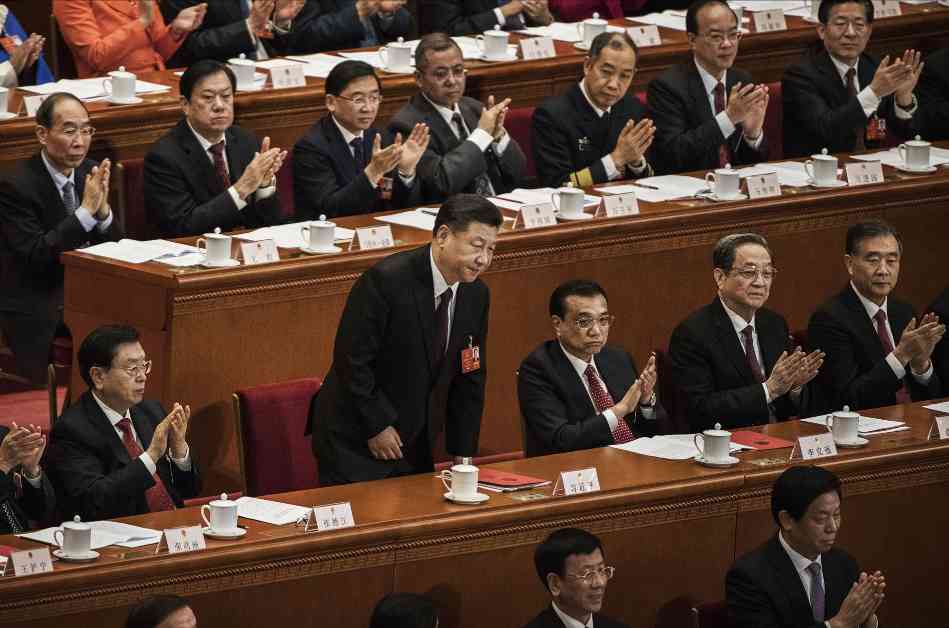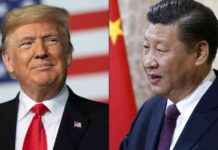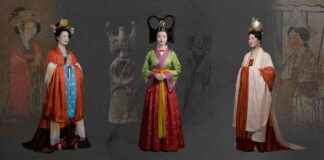Xi Jinping: A Leader Shaped by China’s History
Xi Jinping, the General Secretary of the Chinese Communist Party, has often been compared to Mao Zedong, the founding father of the People’s Republic of China. However, such comparisons oversimplify Xi’s leadership style and fail to capture the nuances of his approach to governance. In his book “Party of One,” journalist Chun Han Wong delves into Xi’s background and upbringing to shed light on the influences that have shaped his political ideology and decision-making.
Born during the Mao era, Xi Jinping witnessed firsthand the tumultuous political landscape of China. His early exposure to Communist Party intrigue and power struggles within his own family instilled in him a deep understanding of how political power operates. While some observers draw parallels between Xi and Mao based on their use of slogans and tactics, Wong argues that Xi’s leadership style is more reminiscent of Liu Shaoqi, a former Party leader known for his emphasis on internal discipline and Party hierarchy.
Xi’s commitment to strengthening the Communist Party as the central instrument of power sets him apart from Mao’s revolutionary approach. Unlike Mao, who mobilized external forces to challenge the Party, Xi focuses on internal purges, Party inquisitions, and strict disciplinary measures to maintain control and unity within the Party. By drawing inspiration from figures like Liu Shaoqi, Xi seeks to instill a sense of loyalty and conformity among Party members, ensuring that they align with his vision for China’s future.
The Evolution of the Chinese Communist Party under Xi Jinping
Over the course of Xi Jinping’s lifetime, the Chinese Communist Party has undergone significant transformations, reflecting the changing political and economic landscape of China. Xi’s formative years during the Mao era exposed him to the excesses of revolutionary fervor and the devastating consequences of policies like the Great Leap Forward and the Cultural Revolution. These experiences shaped Xi’s views on governance and informed his efforts to strike a balance between revolutionary zeal and pragmatic development.
Following Mao’s era, China experienced a period of rapid economic growth and reform under Deng Xiaoping’s leadership. However, this growth was accompanied by issues of corruption and social inequality, prompting Xi to refocus the Party’s priorities on good governance and internal discipline. By emphasizing the Leninist principles of Party management and instilling a sense of Party loyalty among members, Xi aims to steer China towards a more stable and sustainable path of development.
Xi’s administration has introduced new regulations and laws aimed at strengthening Party discipline and internal control. From disciplinary measures against Party members who speak out against the Party Center to guidelines for exemplary behavior, Xi’s emphasis on Party unity and conformity underscores his commitment to consolidating power and implementing his vision for China’s future. While these measures may seem authoritarian to some, they reflect Xi’s belief in the importance of Party cohesion and discipline in achieving his goals.
Economic Policies and Foreign Relations under Xi Jinping
Xi Jinping’s economic policies reflect his dual goals of promoting growth while addressing issues of wealth inequality and social welfare. Unlike his predecessors who prioritized GDP growth at all costs, Xi advocates for a more balanced approach that considers the distribution of wealth and benefits to the majority of the population. Drawing on Maoist principles of common prosperity, Xi seeks to create a more egalitarian society and recalibrate China’s economic development towards sustainable and inclusive growth.
In his foreign policy approach, Xi has adopted a more assertive stance compared to previous leaders, embracing a “wolf warrior” diplomacy that emphasizes China’s core interests and global influence. While this shift began before Xi’s tenure, his administration has intensified China’s presence on the world stage through increased diplomatic outreach and a more aggressive stance on key issues. By projecting strength and asserting China’s place in the international community, Xi aims to position China as a global power to be reckoned with.
One of the defining aspects of Xi’s legacy will be his handling of the Taiwan issue, a longstanding challenge that has eluded resolution for decades. Xi’s sense of urgency and passion for reunification with Taiwan has raised concerns about the potential for conflict and instability in the region. While Xi’s commitment to the “One China” policy is unwavering, the complexities of the Taiwan situation present a formidable obstacle to achieving reunification through peaceful means. The delicate balance between asserting China’s sovereignty and avoiding escalation remains a central dilemma for Xi’s administration.
In conclusion, Xi Jinping’s leadership style and policies reflect a complex blend of historical influences, ideological principles, and strategic objectives. While comparisons to Mao Zedong may offer some insights into Xi’s approach to governance, they fail to capture the full scope of his leadership. By studying Xi’s background, upbringing, and political evolution, we gain a deeper understanding of the forces that have shaped his vision for China’s future. As Xi continues to navigate domestic challenges and international relations, his legacy will be defined by his ability to balance continuity with change, stability with progress, and unity with diversity in a rapidly evolving global landscape.

















